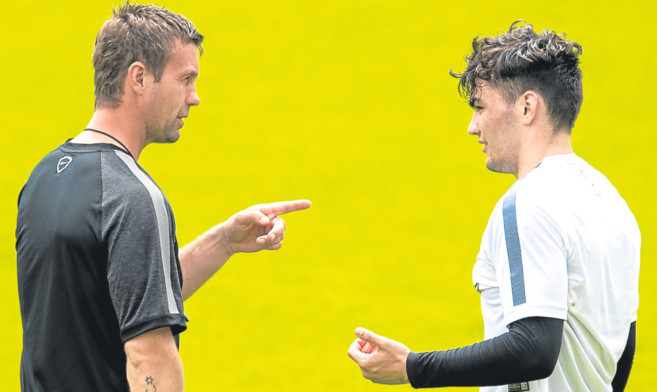
Ronny Deila has revealed he has held one-on-one sessions with all his players to get to know them as people as well as players.
And the new Celtic manager insists he wants his players to come to him with problems rather than take them on to the training pitch.
Deila has watched hours of footage from previous matches to get up to speed with the players he has inherited.
But he is using the club’s pre-season trip to Austria to also get to know them as individuals to improve his chances of getting the best out of them.
The Norwegian said: “I have good knowledge now of the players and I have John Collins and John Kennedy, who know them very well as well.
“I’ve also spoken once with every player and I’m starting to feel that I’m getting to know them. It was just me and the player. We spoke for 15 to 20 minutes at a time.
“It was about what I expect from them and what they can expect from me as well. How was last season for them, the situation they are in, their private life everything.
“So I have knowledge of what is going around and what is happening in their lives and, of course, what I expect of them.”
Deila says he has always held private discussions with his players rather than only addressing them as a group and he believes it can pay dividends.
A number of his players have hit the headlines recently for the wrong reasons, such as Anthony Stokes, Leigh Griffiths, Virgil van Dijk and Tony Watt.
And he wants to create an environment where off-the-field problems aren’t a distraction for what he is trying to achieve on the pitch.
He explained: “I’ve always done that at my teams five or six times a year, every player.
“It’s important feedback if you’re playing or not what you do in training, what could be good and what could be better?
“When you do that, you create energy, you create knowledge for the player, what direction you should go in and that’s very important to develop
players.
“You need to take an interest in their private lives. If a player has a problem outside the pitch, then they can’t concentrate on the pitch.
“I have to know if a player has a member of his family who is sick or something has happened in the family or if they have trouble with money or whatever. I need to know all of these things.
“Because then their energy is going there and not on the training. I always see the whole person, not only the player, and that’s a very important thing. You have to develop players and the person. It’s not only the player, I need to do both.
“Some players have too much away from the pitch to concentrate on the pitch and that’s something I have to talk about. But I am approachable.”

Enjoy the convenience of having The Sunday Post delivered as a digital ePaper straight to your smartphone, tablet or computer.
Subscribe for only £5.49 a month and enjoy all the benefits of the printed paper as a digital replica.
Subscribe